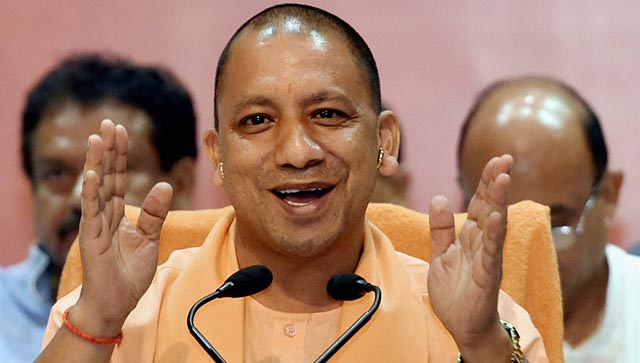Amid these turbulent times, fuelled by spontaneous riots under the banner of outrage, we are confronted with a disheartening reality that threatens to destabilise the very essence of global democracies and infringe upon the rights of law-abiding citizens. From the streets of France, horror scenes unfold as relentless violence, arson, vandalism, and looting in the name of justice grip the nation. Disturbing footage captures a population driven to loot, decimate public property, and create an environment of insecurity. Not too long ago, the United States of America witnessed similar scenes, where the “right to peacefully protest” became a conflated veil for over 18 deaths and a staggering $2 billion in property damage and vandalism. The Insurance Information Institute has marked the 2020 riots across 20 states in the US as one of the costliest in the nation’s insurance history. In recent times, democracies across the globe have witnessed a concerning trend of riots and looting orchestrated under the guise of outrage. Delving into the root causes of these disturbances, it becomes imperative to explore the influence of Marxist cultural study influenced by academia on fuelling such unrest. The Marxist ideology and its radical interpretations have spawned movements that resort to violence, jeopardising the very foundations of democracy. There have been concerted efforts to advocating for the destruction of the rule of law. Such dogmatic adherence to ideology has inadvertently paved the way for the justification of violence and unrest as a means to achieve their goals. Within the broader landscape of protests and demonstrations, opportunistic elements influenced by radicalism have exploited legitimate grievances and channelled them towards destructive ends like the case of the riots in the United States of America wherein by infiltrating peaceful movements, these individuals and groups instigate violence, looting, and chaos, undermining the original intent of the protests. The Black Lives Matter movement, born out of a collective desire to peacefully protest against the unjust killing of George Floyd, has sadly witnessed a troubling metamorphosis. Such actions distract from the core issues and tarnish the credibility of peaceful activism. There has been a serious attempt to co-opt peaceful protests to achieve malicious ends. The violent nature of riots and looting serves as a catalyst for anarchy, disregarding the democratic values upon which many societies are built. By promoting disorder and disregarding the rule of law, these movements undermine the principles of justice, fairness, and equal opportunity. Instead of fostering genuine progress and social change, the resulting chaos further exacerbates divisions and hampers the pursuit of constructive dialogue and reforms. Religious extremism has regrettably found refuge in the ideology of violence propagated by certain factions supported by the Marxist school of thought. The distressing footage emerging from France vividly illustrates the devastating impact this has had on the nation, its citizens, and the collective moral compass. Law enforcement institutions tasked with upholding order appear momentarily paralyzed in their response to this alarming phenomenon due to their dangerous ideological conditioning that has made its way to popular culture as “political correctness”. Such distressing times for democracies worldwide beg the question - is there a sustainable democratic model of law and order? The Yogi Adityanath model of law and order is centred around an unwavering commitment to justice that neither infringes upon the rights of society nor justifies the occurrence of riots in any region. It takes firm and definitive actions against everybody seeking to disturb the law and order situation by seeking to be judge, jury and executioners themselves. The problem with mob justice is that it is easily exploited by malicious actors to achieve unjust outcomes and has no place in a democratic society. Such instances consistently result in the violation of the lives and rights of law-abiding citizens. While it is the responsibility of the state to administer justice, it is equally crucial for it to prevent spontaneous rioting that seeks to take the law into its own hands and Yogi Adityanath has successfully demonstrated the same in the state of Uttar Pradesh in what is now called the “Yogi administration of law and order” world over. Yogi Adityanath revolutionised the policing and justice system in a former mafia state plagued by sectarian violence and frequent riots. Through measures such as implementing the “Gangsters Act” and modernising the police force with advanced technology, he effectively dismantled the institutionalized mafia that once terrorised society. The Uttar Pradesh government’s bill for the recovery of damages to public and private property caused by violent protests further strengthens the state’s commitment to maintaining law and order. Under his capable leadership, the government has swiftly confiscated the properties of rioters, establishing a consequential framework against the violation of the rule of law in the state. Yogi Adityanath’s initiatives have successfully insulated Uttar Pradesh from criminal activities, resulting in a significantly improved security situation. In the realm of law and order, effective implementation surpasses the significance of the system itself. The allocation of resources holds greater importance than mere budgetary figures and the pursuit of justice should take precedence over political correctness. As democracies grapple with rising sectarian violence and challenges to the rule of law, it becomes imperative for governments to prioritize actions that safeguard the collective conscience of their society and people as Yogi Adityanath does for the people of Uttar Pradesh. The author is a former president-elect at the University of Oxford. She’s a human rights activist. Views are personal. Read all the Latest News , Trending News , Cricket News , Bollywood News , India News and Entertainment News here. Follow us on Facebook , Twitter and Instagram .
In riot control, Yogi administration remains epitome of effectiveness and unmatched outcomes
Rashmi Samant
• July 4, 2023, 14:31:01 IST
Whenever extremism fuels riots, chaos engulfs and law and order situation arise in any part of the globe, the World seeks solace and yearns for the transformative “Yogi Model” of law and order in Uttar Pradesh
Advertisement
)
End of Article